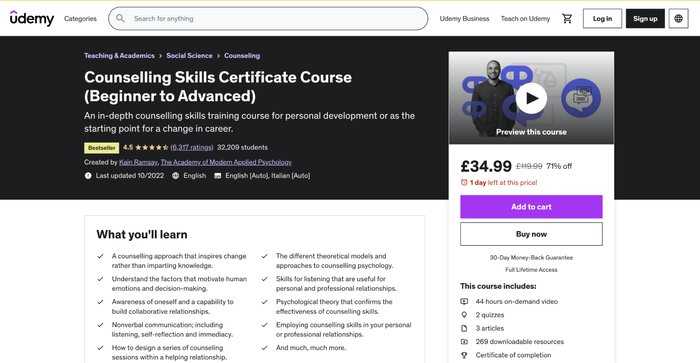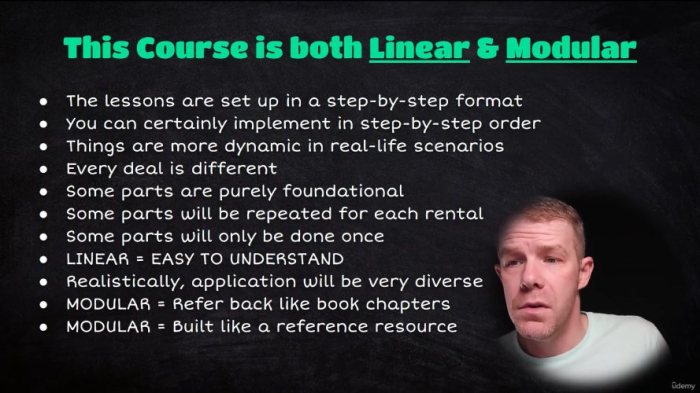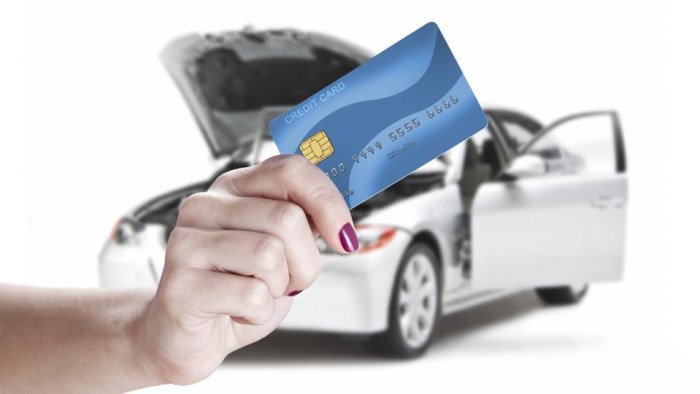Drone Courses Online Learn to Fly and Explore
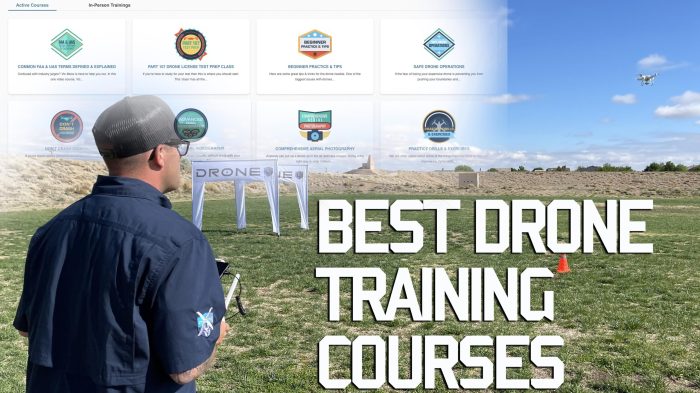
Drone Courses Online: Learn to Fly and Explore. The world of drones is rapidly expanding, offering exciting opportunities in fields like photography, delivery, and even agriculture. With the increasing popularity of drones, taking a drone course online can equip you with the knowledge and skills needed to operate these fascinating machines safely and effectively.
These courses provide a comprehensive understanding of drone technology, from the basics of operation to advanced concepts like aerial photography and videography. Whether you’re a hobbyist looking to capture stunning aerial footage or a professional seeking to integrate drones into your business, online drone courses offer a flexible and accessible way to learn.
Introduction to Drone Technology
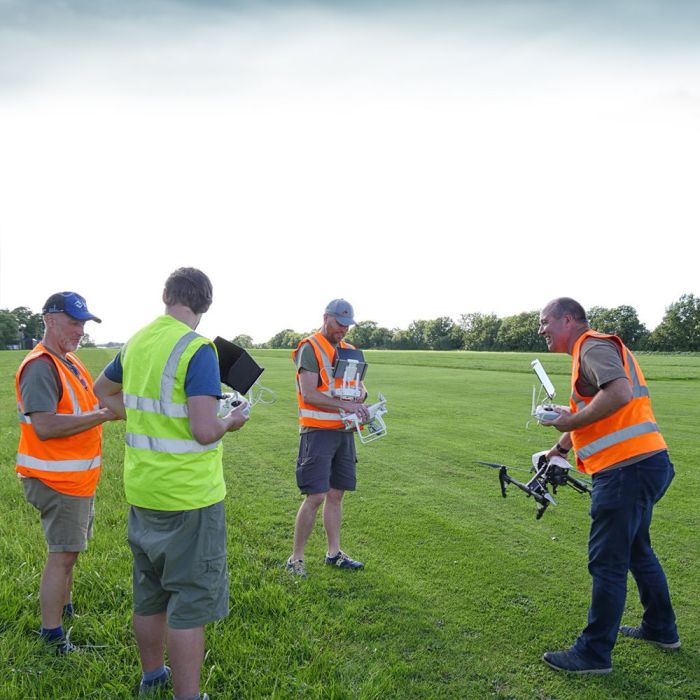
Drones, also known as unmanned aerial vehicles (UAVs), have rapidly evolved from military applications to becoming an integral part of various industries and everyday life. This section will explore the different types of drones, their diverse applications, and the historical journey of this transformative technology. We will also delve into the benefits and challenges associated with drone usage.
Types of Drones and Their Applications
Drones come in various shapes, sizes, and capabilities, each designed for specific purposes. Here’s a breakdown of common drone types and their applications:
- Fixed-Wing Drones: These drones resemble airplanes with fixed wings, offering longer flight times and greater range compared to multi-rotor drones. They are commonly used for aerial photography, surveillance, and mapping large areas.
- Multi-Rotor Drones: These drones have multiple rotors for lift and maneuverability, providing agility and vertical takeoff and landing capabilities. They are widely used for aerial photography, videography, inspection, and delivery services.
- Hybrid Drones: Combining the advantages of fixed-wing and multi-rotor drones, these hybrids offer extended flight times and greater range while maintaining some maneuverability. They are employed for applications such as aerial surveying, agriculture, and search and rescue operations.
History and Evolution of Drone Technology
The development of drone technology can be traced back to the early 20th century, with the first unmanned aerial vehicles being used for military reconnaissance. The evolution of drone technology has been driven by advancements in electronics, sensors, and software.
- Early Developments (1910s-1940s): Early drones were primarily used for military purposes, such as target practice and reconnaissance. They were often controlled remotely using radio signals and were limited in their capabilities.
- Post-World War II (1950s-1970s): The development of transistors and integrated circuits led to more sophisticated drones with improved control systems and payload capacity. These drones were used for a wider range of military applications, including surveillance and bombing.
- Modern Era (1980s-Present): The advent of GPS technology, advanced sensors, and powerful computing capabilities has revolutionized drone technology. Modern drones are capable of autonomous flight, sophisticated navigation, and data collection. They are now widely used in various sectors, including agriculture, infrastructure inspection, law enforcement, and delivery services.
Benefits and Challenges of Using Drones
Drones offer numerous benefits across various industries, but their use also comes with challenges. Understanding these aspects is crucial for responsible drone operation.
- Benefits:
- Cost-effectiveness: Drones can perform tasks that would otherwise require expensive equipment or human resources.
- Increased Efficiency: Drones can automate tasks, reducing the time and effort required for data collection and analysis.
- Improved Safety: Drones can be used to inspect hazardous environments, reducing risks to human personnel.
- Enhanced Data Collection: Drones can capture high-resolution images and videos, providing valuable insights for various applications.
- Challenges:
- Safety Concerns: Drone operations need to adhere to strict safety regulations to prevent accidents and ensure public safety.
- Privacy Issues: The use of drones for surveillance raises concerns about privacy violations and data security.
- Legal and Regulatory Frameworks: Navigating the evolving legal and regulatory landscape surrounding drone operations can be complex.
- Technical Limitations: Drones have limitations in terms of flight time, range, and payload capacity.
Types of Drone Courses Online
The online drone course landscape is diverse, offering a range of options catering to different skill levels, interests, and career aspirations. Understanding the various types of drone courses available online is crucial for selecting the most appropriate program for your needs.
Types of Drone Courses
Online drone courses can be broadly categorized into several types, each with a distinct focus and target audience.
- Beginner Drone Courses: These courses are designed for individuals with no prior experience in drone operation or technology. They typically cover the fundamentals of drone operation, safety regulations, and basic aerial photography and videography. These courses are ideal for hobbyists, enthusiasts, and those looking to gain a basic understanding of drones.
- Advanced Drone Courses: These courses are designed for individuals with some prior experience in drone operation who want to enhance their skills and knowledge. They cover advanced topics such as drone flight planning, aerial mapping, drone programming, and commercial drone operations. These courses are suitable for professionals in various industries, including photography, videography, real estate, agriculture, and surveying.
- Drone Pilot Certification Courses: These courses prepare individuals for the Part 107 Remote Pilot Certification exam administered by the Federal Aviation Administration (FAA) in the United States. These courses cover the regulations, procedures, and knowledge required to operate drones commercially. These courses are essential for individuals seeking to operate drones commercially in the United States.
- Drone Photography and Videography Courses: These courses focus on using drones for capturing stunning aerial images and videos. They cover topics such as composition, lighting, drone camera settings, and post-processing techniques. These courses are suitable for photographers, videographers, filmmakers, and anyone interested in aerial photography and videography.
- Drone Programming Courses: These courses teach individuals how to program drones using software such as Python or ROS. They cover topics such as drone control, sensor integration, and autonomous flight. These courses are suitable for engineers, developers, and anyone interested in drone automation and robotics.
- Drone Business and Entrepreneurship Courses: These courses focus on the business aspects of drone operations. They cover topics such as drone regulations, insurance, marketing, and business planning. These courses are suitable for entrepreneurs, business owners, and anyone interested in starting a drone-related business.
Curriculum Comparison
The curriculum of drone courses varies depending on the type of course and the target audience. Beginner courses typically cover basic concepts and hands-on operation, while advanced courses delve into more complex topics. Drone pilot certification courses focus on FAA regulations and exam preparation. Drone photography and videography courses emphasize creative techniques, and drone programming courses teach coding skills. Drone business and entrepreneurship courses provide insights into the business aspects of drone operations.
Target Audience
Each type of drone course targets a specific audience. Beginner courses are ideal for hobbyists and newcomers to drones. Advanced courses cater to professionals and experienced drone operators. Drone pilot certification courses are essential for commercial drone pilots. Drone photography and videography courses appeal to photographers, videographers, and filmmakers. Drone programming courses attract engineers, developers, and robotics enthusiasts. Drone business and entrepreneurship courses target entrepreneurs and business owners interested in drone-related ventures.
Benefits of Taking Drone Courses Online
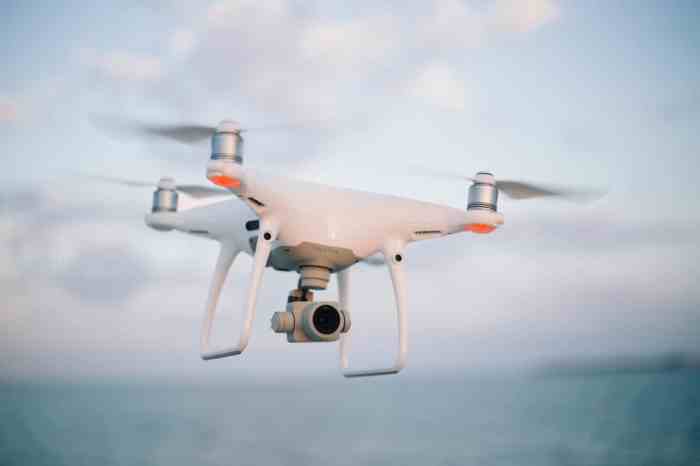
Learning about drones online offers numerous advantages that cater to individuals and businesses alike. These courses provide a flexible and accessible way to acquire valuable knowledge and skills in the rapidly growing field of drone technology.
Flexibility and Accessibility
Online drone courses offer unparalleled flexibility and accessibility, making learning about drones convenient for people with busy schedules or limited access to traditional educational institutions. Here are some key benefits:
- Learn at your own pace: Online courses allow you to progress through the material at a speed that suits your individual learning style and schedule. You can revisit modules as needed and take breaks whenever you need them.
- Study from anywhere: With an internet connection, you can access drone courses from the comfort of your home, office, or even while traveling. This eliminates the need to commute to a physical classroom.
- Choose a course that fits your needs: Online platforms offer a wide range of drone courses catering to different skill levels, interests, and career goals. You can select a course that aligns with your specific requirements and objectives.
Career Advancement and Business Opportunities
Online drone courses can provide individuals and businesses with valuable skills that enhance career prospects and open doors to new opportunities.
- Expand career options: Drone technology is rapidly evolving, creating a growing demand for skilled professionals in various industries. Online courses can equip you with the knowledge and skills needed to pursue careers in fields such as aerial photography, videography, inspection, surveying, and delivery.
- Gain a competitive edge: By acquiring drone expertise, you can differentiate yourself from other professionals and stand out in a competitive job market. This can lead to higher salaries, better job security, and more fulfilling career paths.
- Boost business efficiency and profitability: Businesses can leverage drone technology to improve efficiency, reduce costs, and increase revenue. Online drone courses can help businesses understand the potential applications of drones and implement them effectively in their operations.
Finding the Right Drone Course
Navigating the world of drone courses can be overwhelming, especially with the abundance of options available. Choosing the right course is crucial for your learning journey and ensures you gain the knowledge and skills you need.
Factors to Consider When Choosing a Drone Course
To find the best drone course for your needs, consider these crucial factors:
- Your Goals: Define your objectives for taking a drone course. Are you interested in recreational flying, aerial photography, videography, commercial operations, or specific industry applications? Your goals will determine the type of course you need.
- Drone Type: Specify the type of drone you intend to use. Different drones have varying capabilities and features, and courses may focus on specific models or drone categories.
- Level of Expertise: Determine your current drone knowledge and experience. Look for courses that cater to your level, whether beginner, intermediate, or advanced.
- Course Format: Decide on the preferred format: online, in-person, or a combination. Online courses offer flexibility, while in-person classes provide hands-on experience.
- Instructor Expertise: Evaluate the instructor’s qualifications and experience. Look for instructors with industry certifications, practical experience, and a proven track record in drone operations.
- Course Curriculum: Review the course syllabus to ensure it covers the topics relevant to your goals. Consider the depth of coverage, practical exercises, and real-world applications.
- Cost and Value: Compare course fees and weigh them against the value offered. Look for courses that provide comprehensive learning materials, instructor support, and opportunities for practical application.
- Reviews and Testimonials: Read reviews and testimonials from previous students to gauge the quality of the course and instructor. This provides valuable insights into the learning experience.
Guide to Finding the Best Online Drone Course
Follow these steps to find the perfect online drone course:
- Identify Your Needs: Clearly define your goals, drone type, and desired level of expertise. This will help you narrow down your search.
- Explore Online Platforms: Look for reputable online learning platforms specializing in drone courses. Popular platforms include Coursera, Udemy, Skillshare, and edX.
- Read Course Descriptions: Carefully review course descriptions, focusing on the curriculum, learning objectives, and instructor credentials.
- Check Instructor Profiles: Evaluate the instructor’s expertise, experience, and teaching style. Look for instructors with relevant industry certifications and practical experience.
- Read Reviews and Testimonials: Gain insights from previous students by reading reviews and testimonials. This helps you assess the course’s quality and effectiveness.
- Compare Courses: Consider factors like price, duration, course format, and availability of support materials. Compare different courses to find the best fit for your needs and budget.
Researching Course Providers and Credentials
It is essential to research the course providers and their credentials to ensure you choose a reputable and trustworthy program.
- Check for Accreditation: Look for courses offered by accredited institutions or organizations. Accreditation indicates that the course meets industry standards and quality assurance measures.
- Verify Instructor Qualifications: Verify the instructor’s credentials, certifications, and practical experience in drone operations. Look for instructors with relevant industry knowledge and expertise.
- Read Reviews and Testimonials: Gather information from previous students by reading reviews and testimonials. This provides insights into the course provider’s reputation and the quality of their programs.
- Contact the Course Provider: Reach out to the course provider with any questions or concerns you may have. This allows you to assess their responsiveness and willingness to provide support.
Drone Regulations and Safety
Flying drones responsibly is crucial for ensuring the safety of yourself, others, and your drone. Understanding and adhering to regulations is essential for a positive experience.
Understanding Drone Regulations
Drone regulations vary depending on your location, but some common guidelines include:
- Registration: In many countries, drones exceeding a certain weight must be registered with the relevant aviation authority. This helps identify the drone owner in case of incidents.
- Operating Limits: There are often restrictions on where you can fly drones, such as near airports, military bases, and sensitive areas. These restrictions are in place to protect national security and public safety.
- Flight Altitude: You are typically restricted from flying drones above a certain altitude, usually around 400 feet. This helps prevent collisions with manned aircraft and ensures privacy.
- Visual Line of Sight: You are generally required to keep your drone within visual line of sight. This means you should be able to see the drone at all times during operation.
The Importance of Responsible Drone Operation
Responsible drone operation ensures the safety of yourself, others, and your drone. It also helps prevent potential damage to property and maintain a positive image for the drone community.
- Avoiding Collisions: Operating drones safely helps prevent collisions with other aircraft, buildings, and people.
- Respecting Privacy: Responsible drone operation involves respecting the privacy of others. Avoid flying drones over private property or recording individuals without their consent.
- Protecting Wildlife: Drones can disturb wildlife, especially nesting birds. Be aware of wildlife habitats and avoid flying drones in sensitive areas.
- Following Regulations: Adhering to drone regulations demonstrates your commitment to responsible drone operation and contributes to a safe and enjoyable flying environment.
Staying Safe While Flying Drones
Staying safe while flying drones is crucial. Here are some essential tips:
- Check Weather Conditions: Avoid flying drones in strong winds, rain, or fog. These conditions can make it difficult to control the drone and increase the risk of accidents.
- Fly in Open Areas: Choose open areas for flying drones, away from obstacles and crowds. This gives you ample space to maneuver the drone and reduces the risk of collisions.
- Keep a Safe Distance: Maintain a safe distance from people, vehicles, and structures while flying your drone. This helps prevent accidents and ensures the safety of everyone involved.
- Be Aware of Your Surroundings: Pay attention to your surroundings while flying your drone. This includes being aware of other aircraft, people, and obstacles.
- Fly Responsibly: Remember that you are responsible for the actions of your drone. Fly safely and responsibly, and be aware of the potential consequences of your actions.
Careers in the Drone Industry: Drone Courses Online
The drone industry is rapidly expanding, creating a wide range of exciting career opportunities. With advancements in technology and increased adoption across various sectors, the demand for skilled professionals in this field is on the rise.
Drone Pilot
Drone pilots are responsible for operating drones for various purposes, including aerial photography, videography, inspections, and data collection. They need to have a thorough understanding of drone technology, regulations, and safety protocols.
- Required Skills: Strong spatial awareness, ability to navigate complex airspace, meticulous attention to detail, and excellent communication skills.
- Qualifications: A Part 107 Remote Pilot Certificate from the Federal Aviation Administration (FAA) in the United States is required to operate drones commercially.
- Drone Courses Can Help: Drone courses provide the necessary knowledge and practical training to prepare individuals for the Part 107 exam and equip them with the skills to operate drones safely and effectively.
Drone Technician
Drone technicians are responsible for maintaining, repairing, and troubleshooting drones. They are skilled in electronics, mechanics, and software.
- Required Skills: Technical expertise, problem-solving abilities, strong understanding of drone components, and ability to work independently.
- Qualifications: A technical background in electronics or a related field is beneficial, and specialized training in drone maintenance is essential.
- Drone Courses Can Help: Drone courses can provide a solid foundation in drone technology, maintenance procedures, and troubleshooting techniques, preparing individuals for a career as a drone technician.
Drone Data Analyst
Drone data analysts are responsible for processing, analyzing, and interpreting data collected by drones. They use specialized software and techniques to extract meaningful insights from aerial imagery and sensor data.
- Required Skills: Strong analytical skills, proficiency in data analysis software, understanding of geospatial data, and ability to communicate findings effectively.
- Qualifications: A degree in computer science, data science, or a related field is often required, along with experience in data analysis and interpretation.
- Drone Courses Can Help: Drone courses can provide an introduction to drone data collection, analysis techniques, and relevant software, preparing individuals for a career in drone data analysis.
Drone Software Developer, Drone courses online
Drone software developers create and maintain software applications for drones. They are responsible for developing algorithms, user interfaces, and other software components that enhance drone functionality and performance.
- Required Skills: Strong programming skills, understanding of drone technology, ability to work in a collaborative environment, and knowledge of software development methodologies.
- Qualifications: A degree in computer science or a related field is essential, along with experience in software development and familiarity with drone platforms.
- Drone Courses Can Help: Drone courses can provide an overview of drone technology and software development principles, allowing individuals to gain a comprehensive understanding of the industry and prepare for a career in drone software development.
Drone Instructor
Drone instructors teach individuals how to operate drones safely and effectively. They provide training on drone technology, regulations, and best practices.
- Required Skills: Strong communication and teaching skills, in-depth knowledge of drone technology and regulations, and ability to adapt teaching methods to different learning styles.
- Qualifications: A Part 107 Remote Pilot Certificate and experience in drone operation are essential, along with relevant training and certifications in teaching or instruction.
- Drone Courses Can Help: Drone courses can provide individuals with the necessary knowledge and skills to become certified drone instructors, enabling them to share their expertise and contribute to the growth of the drone industry.
Practical Applications of Drone Technology

Drones, also known as unmanned aerial vehicles (UAVs), have revolutionized various industries, offering innovative solutions and increasing efficiency. They are versatile tools with diverse applications, ranging from photography and delivery to agriculture and beyond.
Photography and Videography
Drones have transformed the world of photography and videography, providing unique perspectives and stunning visuals.
- Aerial Photography: Drones capture breathtaking aerial shots, showcasing landscapes, cityscapes, and architectural marvels from a bird’s-eye view. These images are widely used in real estate, tourism, and environmental monitoring.
- Videography: Drones enable filmmakers and videographers to create cinematic shots, capturing dynamic action sequences, breathtaking landscapes, and immersive experiences. This has revolutionized filmmaking, documentaries, and event coverage.
- Inspection and Monitoring: Drones equipped with high-resolution cameras can inspect infrastructure, such as bridges, power lines, and pipelines, for damage or defects. This helps identify potential hazards and ensures safety.
Delivery and Logistics
Drones are changing the landscape of delivery and logistics, offering faster, more efficient, and cost-effective solutions.
- Package Delivery: Drone delivery services are gaining popularity, particularly in remote areas or for urgent deliveries. They can navigate tight spaces and reach destinations inaccessible to traditional vehicles.
- Medical Supplies: Drones are used to deliver medical supplies and blood samples to remote areas or hospitals during emergencies, ensuring timely access to essential healthcare services.
- Inventory Management: Drones can scan and track inventory in warehouses, improving stock management and reducing errors. They can also provide real-time data on inventory levels.
Agriculture
Drones are playing a significant role in modern agriculture, improving efficiency and sustainability.
- Precision Farming: Drones equipped with sensors can monitor crops, identify areas of stress, and analyze soil conditions. This data helps farmers optimize irrigation, fertilization, and pest control, maximizing crop yields and reducing waste.
- Crop Monitoring: Drones can capture aerial images of crops, allowing farmers to monitor plant health, detect diseases, and identify areas requiring attention. This early detection enables timely intervention and reduces crop losses.
- Spraying and Seeding: Drones can be used for precise spraying of pesticides and fertilizers, reducing chemical usage and minimizing environmental impact. They can also be used for seed distribution, ensuring even coverage and optimal germination.
Search and Rescue
Drones are valuable tools for search and rescue operations, aiding in locating missing persons and providing critical information during emergencies.
- Disaster Response: Drones can survey disaster areas, assess damage, and locate survivors trapped in rubble or remote locations. They provide real-time information to rescue teams, enabling faster and more efficient response.
- Missing Person Searches: Drones equipped with thermal imaging cameras can search for missing persons in challenging terrain or dense forests, significantly increasing the chances of finding them.
- Wildlife Monitoring: Drones are used to monitor wildlife populations, track animal movements, and assess habitat conditions. This data helps conservation efforts and protects endangered species.
Law Enforcement and Security
Drones are increasingly used by law enforcement and security agencies for surveillance, monitoring, and crime prevention.
- Surveillance and Monitoring: Drones can provide aerial views of crime scenes, monitor large gatherings, and patrol sensitive areas. They enhance situational awareness and support law enforcement efforts.
- Border Security: Drones are deployed along borders to detect illegal crossings, monitor smuggling activities, and enhance security measures. They provide real-time surveillance and reduce human risk.
- Evidence Collection: Drones can capture aerial footage of crime scenes, providing valuable evidence for investigations. They can also be used to inspect suspicious objects or areas from a safe distance.
Construction and Engineering
Drones are used in construction and engineering projects for site surveys, inspection, and monitoring.
- Site Surveys: Drones can quickly and efficiently survey large construction sites, capturing high-resolution images and creating detailed 3D models. This data helps optimize planning, design, and construction processes.
- Bridge Inspections: Drones equipped with cameras and sensors can inspect bridges for damage, corrosion, and structural defects, ensuring safety and identifying potential hazards.
- Progress Monitoring: Drones can monitor construction progress, track material deliveries, and identify potential delays. This helps project managers make informed decisions and ensure timely completion.
Environmental Monitoring
Drones are valuable tools for environmental monitoring, providing data on air quality, water pollution, and wildlife populations.
- Air Quality Monitoring: Drones equipped with sensors can measure air pollutants, such as particulate matter, ozone, and carbon monoxide. This data helps track air quality trends and identify pollution sources.
- Water Quality Monitoring: Drones can monitor water bodies for pollution, algal blooms, and other environmental issues. They can also assess water depth and flow rates.
- Wildlife Surveys: Drones can be used to count wildlife populations, track animal movements, and assess habitat conditions. This data helps conservation efforts and protects endangered species.
Future Potential of Drone Technology
Drone technology is rapidly evolving, with exciting advancements on the horizon.
- Autonomous Flight: Drones are becoming increasingly autonomous, capable of navigating complex environments and performing tasks without human intervention. This will further expand their applications and capabilities.
- Advanced Sensors: Drones are being equipped with more sophisticated sensors, such as lidar, radar, and hyperspectral imaging, providing even more detailed and accurate data. This will enhance their use in various industries.
- Integration with Artificial Intelligence (AI): AI is being integrated into drone systems, enabling them to learn, adapt, and make decisions based on real-time data. This will lead to more intelligent and efficient drones.
The accessibility and flexibility of online drone courses make them an ideal option for individuals and businesses alike. Whether you’re a complete beginner or have some prior experience, there’s a course out there for you. By taking a drone course online, you can unlock the potential of this revolutionary technology and prepare yourself for the exciting future of the drone industry.
Question Bank
What are the prerequisites for taking a drone course online?
Most online drone courses don’t have strict prerequisites. However, basic computer skills and a willingness to learn are essential. Some courses may require specific software or hardware, which will be Artikeld in the course description.
How long does it take to complete an online drone course?
The duration of online drone courses varies depending on the course level and content. Some courses can be completed in a few weeks, while others may take several months. The pace of learning is flexible and can be adjusted to your schedule.
Are there any certifications available after completing a drone course online?
Many online drone courses offer certifications upon successful completion. These certifications can demonstrate your knowledge and skills to potential employers or clients. It’s important to research the reputation and credibility of the certifying organization.
Drone courses online offer a great way to learn about this exciting technology, and many are designed for both beginners and experienced pilots. As you explore these courses, you might also consider how you can protect your investment, like exploring insurance options. Metromile car insurance, for example, offers unique pricing based on your actual driving habits , which could be beneficial for those who use their drones frequently.
Once you’ve mastered the basics of drone operation, you can explore the world of aerial photography, videography, or even commercial drone applications.
Drone courses online are becoming increasingly popular, offering a practical way to learn about this exciting technology. As you explore your options, remember to factor in the cost of operating a drone, which includes insurance. In Alabama, you can find cheap car insurance options to help keep your expenses down, giving you more flexibility to invest in your drone training and equipment.
Drone courses online are becoming increasingly popular, offering individuals the chance to learn the skills needed to operate these versatile machines. Whether you’re interested in photography, videography, or even delivery services, these courses can provide you with the knowledge and certification to pursue your passion. Of course, if you’re planning on using a drone for commercial purposes, it’s important to ensure you have adequate insurance coverage, such as Chubb car insurance , which may offer specialized drone insurance policies.
After all, safety and liability are crucial when operating drones, especially in a professional capacity.



